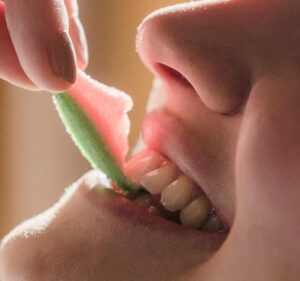
I recall the day after I returned from a week-long dental mission trip in Sierra Leone, a country on the southwest coast of West Africa. I was walking to work in New York City. For a moment, it felt like I’d never been to Kono, a district in Sierra Leone’s war-torn eastern province. I’m living in a city with tons of restaurants and bakeries around me. I’ve never worried about having enough water or electricity becoming a luxury product.
But I was there, along with a faculty member, an assistant and five classmates from Buffalo. We left behind our love, hope and positive energies to the locals of Kono.


Why I joined the mission trip
I immigrated to the United States in 2011. I came from a village in China that has some similarities with Kono, where sometimes there isn’t electricity. (Fortunately, water is not a concern in my village). At first, I didn’t know where Sierra Leone was located. I used Google maps to find it. It’s a largely rural, agricultural-focused country rich in minerals, among the top 10 diamond-producing nations. Medical care is not readily accessible throughout the country, with doctors and hospitals out of reach for many villagers. Dr. Emanuel Gambacorta, a faculty member on the trip, visited Sierra Leone before the -COVID-19 pandemic. During this visit, his goal was to educate the staff of a health center in Kono so that after we left the knowledge would stay and continue to benefit the community’s oral health. This idea is what attracted me to participate in the mission trip.
Before our trip, Dr. Gambacorta shared an article (“Good news to the poor”) from a Kono resident who expressed his appreciation of a previous mission trip. I was touched by his words but realized the real meaning of them after my trip.
During the mission trip
After a 16-hour flight, we arrived in Freetown, Sierra Leone. This was followed by a five-hour car ride to the Adama Martha Memorial Community Health Center in Kono. Phebian Abdulai, a refugee who fled to the United States during the 1991-2002 Sierra Leone Civil War, built the health center. She became a nurse in America and returned to Sierra Leone to serve.

We spent our first day getting to know the health center and its staff. We introduced silver diamine fluoride and fluoride so the staff can provide preventive care with limited knowledge and equipment. All staff participated with enthusiasm. You could sense the desire to improve and receive knowledge to help their patients.
During our stay, we mainly served the locals with simple dental procedures and extractions with limited equipment for the rest of the week. There were many heartfelt moments from the trip. One involved my classmate, Lauren. The day after Lauren treated her patient, the patient came back to the health center with her older sister. The patient was quiet, looking at me and Lauren. I asked if she had any needs. She stared at us shyly and finally asked, “Do you want to make friends with us?” Another patient, a young boy, shared his dream of becoming a doctor in the future.
On our way back to the airport, we saw groups of people dressing up to celebrate high school graduation. Dr. Gambacorta said, “Isn’t it amazing we all celebrate the same events no matter where we are?” While Sierra Leone seems so different from the United States, people still celebrate the same joys and occasions.


Back in New York
In the middle of August, violent protests broke out in Sierra Leone, triggered by the soaring costs of living. It was difficult to image just a few weeks back I was walking a dog after dinner in the local streets. Everything seemed peaceful at that time. I wondered about the challenges the health system would face after the protests.
Participating in this mission trip allowed me to learn and grow in my skill. But, most importantly, the trip reshaped my character. If you have a chance to serve in Sierra Leone, go. It’s a country with few dentists. Being there is the “good news to the poor.” The locals have a fighting spirit. The seeds we plant will grow and blossom while delivering love and hope.
~Ting Xue, Buffalo ’23


